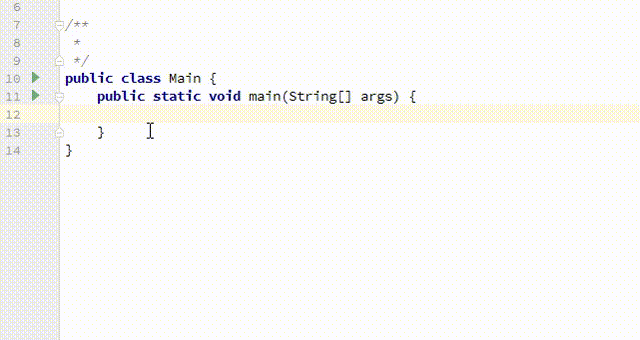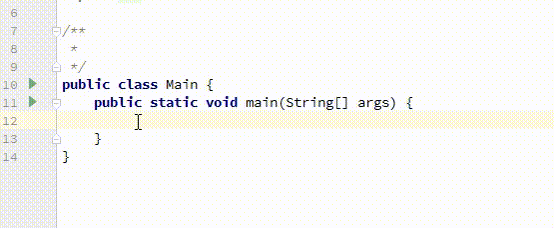IDE icons for experimental and beta Java annotations
This is an IntelliJ/Android Studio IDE plugin to detect the code with @Experimental and @Beta annotations and show a custom icon on the gutter when you use it.
Note that the method switchMapSingle() is annotated with the io.reactivex.annotations.Experimental annotation. Another example of function annotated with a custom Beta annotation:
Why would I want to use this plugin?
We are developers, and we write hundreds of lines of code and use tons of libraries each day. How many of these libraries contain beta and experimental classes and functions?. Which is the answer?. Well, you've probably never thought of that, but I can tell you that there are many!
You don't trust me? Take a look to RxJava (I
With this plugin you know when you are using a beta or experimental piece of code
Install the plugin
There are two methods to install this plugin. The first, clone this repo and build the plugin jar to install it manually into the IDE. The second method, the recommended, search into the Jetbrains plugin manager this plugin Icons for Java annotations and install it
Note that at this moment the plugin is pending JetBrains approval. If you want to test it you need to install it manually!
Automatic installation
You can download the plugin using the Jetbrains plugin manager from your IntelliJ or Android Studio. Go to Settings -> Plugins -> Browse repositories... and search for Icons for Java annotations. Install and restart. This is the recommended option. You can check the plugin page here.
Manual installation
First clone this repo:
git clone https://github.com/fooock/detect-experimental-and-beta-code.git cd detect-experimental-and-beta-codeBuild the plugin using gradle
./gradlew buildThe compiled plugin is in the build/libs directory. Now open your IDE and go to Settings -> Plugins -> Install plugin from disk... and select the plugin. Restart your IDE.
Do you have any question? Ask here
How it works?
The operation of this plugin is very simple, it reads the code of the file that is currently open and if it finds an annotation that is called Experimental or Beta it paints an icon in the IDE gutter. That's all!
Is important to note that the annotation package name is ignored. Using this behavior allows us to always display the icons, regardless of the library that is being used to annotate our code. Do you have any question? Ask here
Icons
The icons used by this plugin are from the github markdown emoji markup. I found in this repo a complete list. For the detected @Experimental annotations the @Beta annotation the
Credits
To create the gifs for this readme I used the online service from cloudconvert. For the video record I use the Icecream apps screen recorder application. Thanks!
License
Copyright 2017 newhouse (nhitbh at gmail dot com) Licensed under the Apache License, Version 2.0 (the "License");
you may not use this file except in compliance with the License. You may obtain a copy of the License at
http://www.apache.org/licenses/LICENSE-2.0 Unless required by applicable law or agreed to in writing, software distributed under the License is distributed on an "AS IS" BASIS, WITHOUT WARRANTIES OR CONDITIONS OF ANY KIND, either express or implied. See the License for the specific language governing permissions and limitations under the License. 
